TARTAN TRACKS
 |
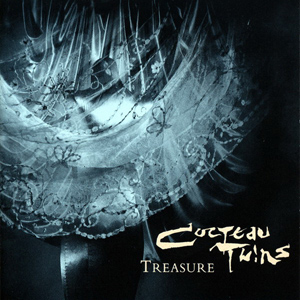 |
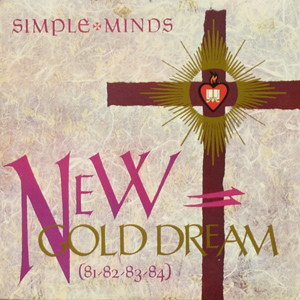 |
A look back at some of Scotland's finest musical exports
By James Paton
(April 2014)
Following on from some of the critical acclaim that was directed towards Boards of Canada's excellent Tomorrow's Harvest, I found myself inexplicably drawn towards taking stock of some of Scotland's finest musical treasures from the last thirty years or so, albums that critics evidently dismissed when deciding that BoC's latest effort was the very best musical treat to emerge from this country. Now, whilst I myself am a huge fan of our ambient geniuses, and their latest album, I could not shake the feeling that what had been said was a rather bold statement indeed, and I not only intended to put that to the test, but to remind others of Scotland's fine musical heritage.
This, of course, is by no means a definitive list of any kind, but rather an appraisal of some of my favourite albums, and the groups who made them.
Bert Jansch L.A. Turnaround
Bert Jansch is something of a legend, not only in his native country, but across the globe for being one of the finest singer-songwriters in the history of the music industry, as well as one of the founding members of the British folk-rock band Pentangle. Releasing his debut, self-titled solo in 1965, he soon followed it with a slew of excellent releases, including 1974's L.A. Turnaround which was produced by, and featured additional guitar work from former Monkee Mike Nesmith.
Opening with the gorgeous "Fresh as a Sweet Sunday Morning," we are treated to Jansch's excellent finger picked guitar work with the steel guitar glissandos of Red Rhodes floating majestically over the top, it's a laid back and thoroughly mesmerising start to what is undoubtedly the finest album that Jansch created in the 1970s, perhaps even his best ever. The instrumental piece, "Chambertin" follows, and it is undoubtedly a perfect showcase for the abilities of Jansch as a guitarist of the highest order, his playing flawless and fluid throughout.
Every composition is comprised of myriad layers of intertwining guitar lines, merging seamlessly into one astonishingly beautiful whole, the album is as relaxed as a lazy afternoon spent in the country, basking in the rays of the summer's sun. The instrumentals in particular sum up succinctly the whole mood of "L.A. Turnaround," though the re-working of traditional Appalachian tune, "Cluck Old Hen" and a surprise return of Jansch's own "Needle of Death" (recently covered live by Jansch fan Neil Young)-itself a composition taken from his first solo record-are certainly not out of place, in fact they seem to relish the company that they keep, adding to a coherent and accomplished musical experience.
I came into this album with a lot of expectation, having heard Jansch's name uttered only with hushed, reverend tones, not to mention the overall acclaim that L.A. Turnaround has gathered over the years, and yet I was not disappointed. It is a truly beautiful album, and surely one of the finest to emerge out of Scotland (via Los Angeles).
Cocteau Twins Treasure
"Treasure" is the third studio album from the Cocteau Twins-who originally hail from Grangemouth-and is the first to feature the inclusion of multi-instrumentalist and producer Simon Raymonde as part of the band's line-up (apparently, they met whilst participating in 4AD's "This Mortal Coil" project). Beyond this though, the album would set the tone for all of the work that the band would do following its release in 1984, and is considered by many to be their crowning achievement.
Through the sculpting of ethereal sounds, a menagerie of melodic lines and some sterling guitar work from Robin Guthrie (primarily on opening track, "Ivo"), the Cocteau's managed to create one of the defining albums of the eighties, and one of the finest works to emerge out of their home country. Arising from the densely layered arrangements, comes the soaring and often indecipherable vocal work of Elizabeth Fraser which, despite the lack of lyrical coherence, provides an emotional counterweight to the proceedings, giving them a sense of fragility, a human touch pervading over the aggressive electronic drums that pound away underneath- arguably the weakest aspect of the arrangements. Fraser's vocal work in particular shines on the album's second track, "Lorelei," which busts into life with Guthrie's guitar and bell chimes before evolving into a gorgeous, uplifting pop song.
Every song is drenched in reverb and the compositions can sound a tad muddy at times, yet this only seems to add to the album's mystique, for it can be at once exceedingly noisy and extremely delicate, the opening track is a wonderful example as it builds from a gentle acoustic number into a positively filthy, distortion drenched guitar solo that could have been stolen from the finest proponents of shoegaze. Elsewhere, "Persephone" is an aggressive number of driving drums and superb guitar work, a rather stark contrast to the fragile tenderness of "Pandora" and the softly whispered, exceptionally beautiful, "Otterley." This album, much like the band, is truly multi-faceted.
I have heard it said before that this album was the first where the band got everything spot on, and quite frankly, I could not disagree with that statement, for as much as I feel that the sound of the drum machine has aged very badly, I still don't believe that I would change a thing about it. The album is indeed a treasure, from its subtle, atmospheric art design to the sumptuous and haunting music, and it is one that every serious music fan should own.
The Silencers A Blues for Buddha
The second album from Glaswegian four piece, The Silencers (who ironically met in London), was produced by Flood, and following in the footsteps of a mildly successful debut, Letter From St. Paul, it saw them return to their roots, and their native city, where they worked through the most of 1988 to produce what is considered the finest album in their history.
A Blues for Buddha is a brilliant marriage of pop hooks, rock and Celtic influences that culminates in a thoughtful and endearing album for the ages. It's myriad influences becoming apparent in the opener, "Answer Me," which perfectly sets the tone for all that is set to follow, and is backed up by what is arguably the strongest selection of its eleven tracks, "Scottish Rain." This seven minute beauty explores lyrical themes of love and the Chernobyl nuclear disaster, set against a gloriously downbeat vibe that recalls dreary black and white images of a rain soaked Glasgow, as its intertwining guitars meander their way along, backed up by a plodding bass line and layers of crisp vocals. In short, it's a wonderful piece of music that more than warrants the entry price alone, but of course, there's more. Fan favourite "The Real McCoy" kicks the tempo up considerably to deliver a belter of a pop song, while the simple and effective, "My Love is Like a Wave/Razor Blade (Reprise)" is a startlingly effective wind down towards the wistful finale; it's simple but remarkably beautiful stuff.
The album is packed full of dynamically contrasting compositions, bound together by arrangements of some depth and lyrics of such vivid, and occasionally profound, imagery which tackle such a vast range of human concerns, and are at once both highly personal and yet utterly universal. They provide a voice to those looking for love or understanding in a cold and alienating world, and bring solace to those who cannot find it, and yet remarkably, the album remains generally upbeat and enthusiastic throughout, though it is in the slower numbers that the band really seems to find their voice. So, grab a glass of wine, turn the lights down and give A Blues for Buddha a listen whilst you gaze up in awe at the stars above, and invariably, like Jimme O'Neil's lyrics state on the closing track, you'll find that "everything is right tonight."
Paul Galbraith French Impressions
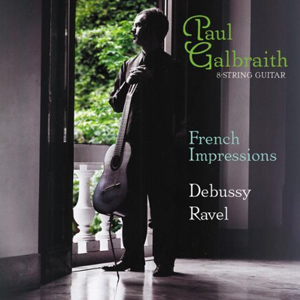
Paul Galbraith will be a name unknown to many; he is a Scottish classical guitarist of such astonishing ability that he has been able to tour the world in the company of some of the finest ensembles, including the Scottish Symphony Orchestra, the Royal Philharmonic and the Moscow Chamber Orchestra. He developed an eight string guitar with the English craftsman and musician David Rubio, which Galbraith plays in an upright position-the guitar also features a metal endpin to support it, which he debuted in 1989 while performing at the Edinburgh Festival. He has thus far released six albums, each one a showcase for his incredible talents, but in 2006's French Impressions, he tackled the works of Debussy and Ravel with aplomb.
Opening with Debussy's "La fille aux cheveau de lin," listeners are immediately treated to some truly magnificent playing which introduces a common thread throughout the album, each performance consistently sounds as if there are two musicians performing on each track, but there isn't, Galbraith is simply that good. The fast paced arpeggios of "Doctor Gradus Ad Parnassum" flutter out of the speakers like birds of prey, before "Jimbo's Lullaby" slows the proceedings down to a crawl, allowing the listener to catch their breath, and not a moment too soon either.
Galbraith soon delivers incredible versions of "Golliwogg's Cakewalk" and "Page D'album," the latter sounding as though it ought to have been on the score of the film The Artist, perfectly capturing the mood of the period, before moving on the works of Maurice Ravel. Here he delivers gentle and evocative performances of "Pavane de la Belle au Bois Dormant" ("Pavane of Sleeping Beauty") and "Les etretiens de la Belle et de la Bête" ("Conversations of Beauty and the Beast"), before bringing the nineteen track album to a close with the abnormally beautiful, "Menuet sur le nom d'Haydn."
As if the sheer quality of the performances weren't enough though, the album has also received a stunning DSD master to ensure the highest possible audio quality, confirming that no faults could possibly be found with this package; it's an album packed full of great music performed by an unbelievably talented musician, so what's not to like? For any serious music fan, this album must surely be considered as an essential purchase; Galbraith is in especially fine form and the arrangements are all utterly magnificent, this is truly incredible stuff.
Simple Minds New Gold Dream
I have heard negativity directed towards this effort from Glasgow's Simple Minds, seen by some as a "sell out" as it was an indication of the band's route towards a more pop fuelled sound, this being part of the transition that would see the band return with 1984's maligned Sparkle in the Rain. However, in 1982 when Simple Minds unleashed New Gold Dream (81-82-83-84), the band struck a perfect balance, and the result is one of, if not the, finest album of their lengthy career.
Kicking off the proceedings with fan favourite (there are a lot of them on here), "Someone Somewhere in Summertime," the band boldly announce their intentions for the album as it kicks in with a simple, yet brilliantly effective keyboard melody, backed up with pounding bass and drums, and building towards an equally simple, yet memorable chorus. The whole album generally follows the same blueprint, with a heavy emphasis on the keys and rhythm sections, and every composition is a combination of effective pop chorus and the band's musical invention, this is truly the sound of a band at the peak of their powers; each song is invariably relaxed, the band are confident and the music is endlessly re-playable.
With its chilled out vibe running across the full running time of the album, there is a sense of conceptual continuity, as though the whole work is something of a concept album, but there are still stand out tracks that simply must be heard by all. The first side of the vinyl being blessed by the brilliant "Big Sleep," an essential tune drive forth by Derek Forbes' fluid bass work, which had always remained a defining aspect of the band's sound, until he eventually parted ways with the group after "Sparkle in the Rain." The title track opens the second side with a bang, a gorgeous synth driven masterpiece, with its cryptic lyrics that seem to envision the dawn of a new world. It's such a work of undeniable beauty and arguably the finest composition on the album. For me though, its strongest competition comes in the form of "Hunter and the Hunted," which emerges two songs later. Opening with chugging bass and drums, backed by ethereal keys, the songs bursts into life to deliver a stunning denouement of the excess of the eighties, topped off with a mesmerising solo from the absolutely magnificent, special guest Herbie Hancock. It's pure bliss.
This is the Minds at their very best, with the pop excesses of their later work kept in check by producer/arranger Peter Walsh, the band thrive throughout all nine songs, delivering what could very well be one of the finest albums to emerge from any country, and not just their native Scotland.
The Jesus and Mary Chain Darklands
Jim and William Reid were two bored and unsatisfied youths from the Scottish new town of East Kilbride, when they decided that they were going to start a band, influenced by the likes of The Sex Pistols and The Velvet Underground. They began sending out demos in the early eighties and were joined in 1984 by Bobby Gillespie (of later Primal Scream fame) on drums; he stayed with them until after the band's debut album, Psychocandy, had been released. Despite launching amid a chart full of electronic pop music, sales figures were reportedly strong, and despite almost breaking up just one year, the band, and their particular brand of noisy, alternative rock was here to stay.
Darklands was The Mary Chain's second album; following fast in the footsteps of their ground-breaking and highly applauded debut, and where most bands would have baulked at such a task as following such a highly regarded release, the Jesus and Mary Chain seemed to relish the challenge, producing what is arguably the finest album of their career. With the departure of Gillespie, the brothers Reid utilised a drum machine, and stripped away the layers of noise that defined their earlier sound to produce a far more melodic set of songs, giving them an immediacy that was perhaps missing first time round, though that is not to say that this album is devoid of its predecessor's longevity. Far from it.
The album opens with the jangly guitar lines of title track, which sounds more akin to The Velvet Underground than The Smiths, recalling their work on their self-titled third album, setting the tone of this release perfectly and introducing the seemingly new found pop sensibilities that would dominate the rest of the twelve tracks. The guitar playing throughout feels more mature and accomplished too, with no better examples than "Happy When it Rains," "Down on Me" and "April Skies" which all chug along purposefully, driven by heavily distorted rhythm guitars and accompanying melodic lead lines, demonstrating the growth of the band not only as musicians but as composers in the short time since their debut album.
There are slower, heartfelt numbers too, such as "Nine Million Rainy Days," a bleak, melancholic depiction of love and loss, or "Cherry Came Too," a portrayal of a caustic, though certainly not discordant relationship between two lost souls. The closing track, "About You," is a beautiful and melodic love song, devoid of the darker side that usually characterizes The Mary Chain's work, that not only shows another side to the Reid brothers, but results in an affecting closer that will linger long after the album has finished playing.
Darklands was a perfect successor to Psychocandy, demonstrating the band's growth in several key areas, as they switched from a full frontal noise assault to a more melodic indie sound, garnering them both critical and commercial acclaim in the process. Now while we may still have their debut presented to us as the ultimate depiction of the band's abilities, I would obviously disagree, and I urge anyone that has yet to set foot beyond Psychocandy to do so, post haste. Darklands is both bleak and upbeat, full of hope and bitterness, and even more than that, it has twelve top notch songs that simply demand your attention, ranking it as arguably The Mary Chain's finest effort to date.
The Blue Nile A Walk Across The Rooftops
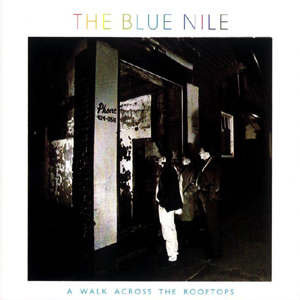
The Blue Nile are a wonderful, limelight-shunning trio from Glasgow, championed by Peter Gabriel, and quite frankly, unique in the entire expanse of the music industry. Shunning public life, they have become as famous for their lack of fame as for the acclaim that they have received for their musical output, which, it must be said, has been relatively light across the expanse of their thirty-three year career, releasing just four albums in that time. However, it's a case of quality over quantity, and arguably, there is no finer example of this than their debut album A Walk Across the Rooftops.
This majestic album eases gently into life with subtle keys before bombarding the listener with seemingly ill-fitting percussion, just before the title song bursts into life. Driven along by a simple, but thoroughly effective bass line, piano and a beautiful string section, "A Walk Across the Rooftops" seems to rather vaguely reminisce Scott Walker's magnificent "It's Raining Today," though is devoid of its ethereal, otherworldly feel, but its impact is almost as strong. It is a gorgeous and haunting song full of yearning that, like the rest of the album, sounds as though it is painting a vivid image of the band's hometown as it is caught up in a torrential downpour with Paul Buchanan standing alone on what would have been a busy street, hunched over with his collar turned up to protect himself against a harsh world.
"Tinseltown in the Rain" follows, and the tempo is kicked up a notch or two by this wonderful love song, one that the band manages to prevent from succumbing to the malaise of overly sentimental lyricism that claims the lives of most. The arrangement is sublime; crafting a marvellous pop song with Paul Buchanan's sumptuous voice in especially fine fettle, as it usually is, creating an endearing and touching composition, ranking it as a strong highlight on what is surely one of the finest albums of the eighties, if not of all time.
The bulk of the album is generally quite downbeat, being some of the finest music to relax to and enjoy, each bearing warm and inviting mixes featuring keys that recall The Who ("From Rags to Riches"), heavily reverb drenched percussion and founding member Robert Bell's excellent bass playing throughout its seven tracks. Buchanan's lyrics are typically vague and yet somehow affecting, resulting in a life affirming listening experience as we hear a man yearning to discover, and keep, the illusive beauty of love. This album, along with each successive release, feels akin to a movie to Buchanan's life, depicting his many triumphs and defeats, and in a roundabout way, laying his soul bare for all to see-they really do feel that intimate-and this only serves to heighten the experience.
A Walk Across the Rooftops is a wonderful listening experience, a work of almost indescribable beauty and fragility, and undoubtedly one of Scotland's finest works of art.
Primal Scream Exterminator

Primal Scream were formed in Glasgow in 1982 by Bobby Gillespie and Jim Beattie, though it would be years before they even started to take off due to Gillespie's stint in The Jesus and Mary Chain as their drummer. Parting ways with the Reid brothers, Gillespie and Beattie expanded the line-up of the band and signed to Creation Records. They were, however, focused on an indie pop sound, for which they received poor reviews and sales, prompting them to change again and yet again before they discovered acid house culture and the sound that would make them stars with 1991's Screamadelica. However, they did not rest on their laurels and continued to evolve across another two album releases, before they finally produced the angsty, politically themed, XTRMNTR.
A vast departure from the band's earlier indie based material, XTRMNTR is a bold, noisy and electronica influenced masterpiece whose intentions are brought to life from the opening track, "Kill All Hippies." It is an anarchic, bass driven call to arms, backed up with heavily distorted synths and guitars whose main hook appears to have been sampled from Labi Siffre's soulful "I Got The..." rather appropriate too as Gillespie chants "you got the money, I got the soul" across the song's near five minute running time. The abnormally distorted, eardrum shattering, Kevin Shields influenced (he actually assisted with the mixing and production of the album) "Accelerator" bursts into life, and it's so dirty, it's almost like listening to an angry version of My Bloody Valentine through blown speakers.
The ‘title' song, "Exterminator" is a politically themed rock song brought to life with a driving bass line, simple drumming, screeching guitars and some of the finest lyrics that the band have ever produced, creating a bleak, dystopian vision of the present. It is as aggressive as it is brilliant, and like the album as a whole, it will stand as one of Primal Scream's greatest accomplishments. It's truly marvellous stuff.
The album is padded out with two versions of the track, "Swastika Eyes," remixed by Jagz Kooner and The Chemical Brothers respectively, highlighting the electronica influence, whilst the song "Pills" bears the touch of hip hop in its angry, four minute rant. "Blood Money" is a superb instrumental, the centrepiece of the album, which at points seems to recall The Smashing Pumpkins' "Age of Innocence," though perhaps again it could just be me. The closing song, "Shoot Speed/Kill Light" is another highlight, bearing all of the hallmarks of Kevin Shields' influence again, mixing a clear and simple melody with heavily distorted guitars to create something that sounds like a mix of My Bloody Valentine and New Order (Bernard Sumner also appears on the album), it is the perfect ending to a near-perfect album.
Boards of Canada Geogaddi
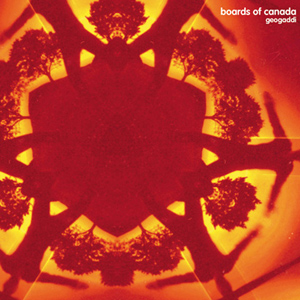
Comprised solely of Marcus Eoin and Michael Sandison, Boards of Canada are a Scottish electronica duo who, like The Blue Nile, have become notorious for their lack of public life, they have thus far released only four full length albums through the Warp label (not including their self-funded projects, such as the highly regarded Twoism), for which there has been very little in the way of advertising or interviews to promote them. And yet, their following is not only loyal, but fairly large too, and this is solely due to the sheer quality of their musical output. In 1998, the duo released their first non-self-released (and non-limited release) album Music Has the Right to Children which was launched to widespread critical acclaim, and set the benchmark for all of their work that would follow. For most artists, such a high standard would have been impossible to follow up, but BoC didn't just match their wonderful debut, they bettered it.
Now while Tomorrow's Harvest may be hogging the limelight at the moment, I can say with some degree of certainty that Geogaddi is my own favourite entry into the Boards of Canada oeuvre thus far. Like the rest, this is a gorgeous, dreamlike audio experience from start to finish, and the perfect successor to the impeccable Music has the Right to Children.
A common theme that runs throughout all of their material is a merging of worlds, where natural tones combine with saturated, processed sounds and punchy beats, creating something that still manages to sound wholly organic. It probably shouldn't even work, but it does. Numbers are a recurring theme, as are the distorted voices of children that fade in and out of the mix, with combinations of the two sounding like a perpetual game of hide and seek; the listener attempting to peer through the layers of intricate synths and complex rhythms for a glimpse into the minds of its creators, to find out what it's all about, but there are no answers given, and somehow even that is just fine.
There are numerous artists across the globe creating high quality ambient music, but nothing sounds quite like the works of Marcus Eoin and Michael Sandison- they are other worldly, sumptuous and utterly sublime. Each track appears to be an invitation to the listener to join BoC in their realm of seclusion, away from the pressures and constraints of everyday life, where, from their hideaway in the Highlands of Scotland, these two musical mavericks hone their trade. It's hard not to envision yourself standing atop a hill as you listen to this album, watching the first rays of sunlight give birth to a new day, its light reflected upon the surface of a stream flowing towards a waterfall at what seems like the end of the earth (think Erik the Viking). It is a beautiful place indeed.
Ultimately though, just listen to the vocal sample on "The Devil is in the Details" as she tells you to "just relax and enjoy this pleasant adventure," because that is exactly what Geogaddi is, ranking it among Scotland's finest musical exports.